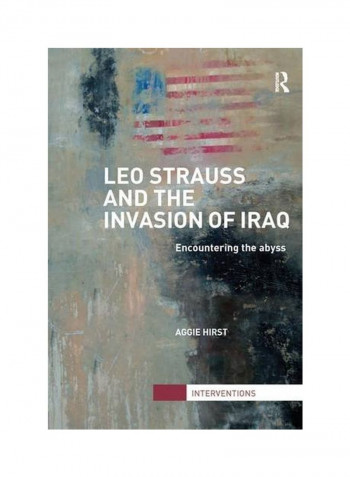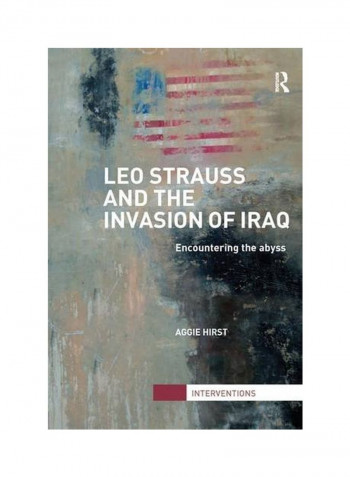Leo Strauss And The Invasion Of Iraq: Encountering The Abyss Paperback
Recommend
Sort by
Rating
Date
Specifications
Country of Origin
India
Author 1
Aggie Hirst
Book Description
The political philosophy of Leo Strauss has been the subject of significant scholarly and media attention in recent years, particularly in the context of the decision to invade Iraq in 2003. Allegations that a group of Strauss-inspired Neo-conservatives intervened in the foreign policy establishment of the US in order to realise the policy of 'regime change' began to emerge soon after the invasion, and unanswered questions remain a decade later. This book addresses these claims, focusing specifically on a group of Straussians active in the spheres of intelligence production, think tanks, and the media during the period from the 9/11 attacks to the invasion in 2003. Such an examination is intended not simply to identify and expose their activities promoting the policy of 'regime change' in Iraq during this period, but also to challenge them and the Straussian logics underpinning them. Utilising the thought of Jacques Derrida, the book enacts a deconstructive challenge to Strauss' political philosophy which unsettles the fundamental assumptions it relies upon. In doing so, it exposes the securitising imperative underpinning Straussian thought and the Straussian interventions. It thereby simultaneously addresses crucial issues in political theory and contemporary foreign policy studies, while asserting that these dimensions of international politics can and should be dealt with in conjunction with each other. This book would be of interest to students and scholars of Global Politics, Political Theory, Security Studies and US Foreign Policy, and those outside the academy interested in Neo-conservatism and the 2003 invasion of Iraq.
ISBN-10
1138289469
ISBN-13
9781138289468
Language
English
Publisher
Taylor & Francis Ltd
Publication Date
31 Oct 2016
About the Author
Aggie Hirst is a Lecturer at City University London, UK.
Editorial Review
Enthusiastically supported by the British government, the American led invasion of Iraq was as much a strategic disaster as it was an ethical and political disgrace. In Leo Strauss and the Invasion of Iraq Aggie Hirst drills down with unparalleled deconstructive skill into the intersection of thought and practice from which the war derived. There, pursuing its Straussean inflection, Hirst challenges the rules of truth that gave rise to neo-liberal truths of rule. In a debut text that offers a model for both teaching and researching into how the ways that we think impact upon the ways in which we act, Hirst assumes a leading position among a philosophically sophisticated and politically committed generation of international relations scholars. Michael Dillon, Emeritus Professor of Politics, Lancaster University, UK. Aggie Hirst's insightful book does not simply retrace familiar lines of influence between the political ideas of Leo Strauss and the roles played by some of his followers in the Iraq War.By demonstrating how profoundly these interventions were informed by Strauss' often cryptic and paradoxical philosophical response to Nietzsche's and Heidegger's critique of Western metaphysics, Hirst raises the debate to another level entirely, and in doing so underscores how readily politics can disrupt the most carefully crafted philosophical projects, while revealing how deeply -- perhaps inextricably - the perennial questions of philosophy remain implicated in the pivotal events of our time. Larry George, Professor of Political Science, California State University at Long Beach, USA.




